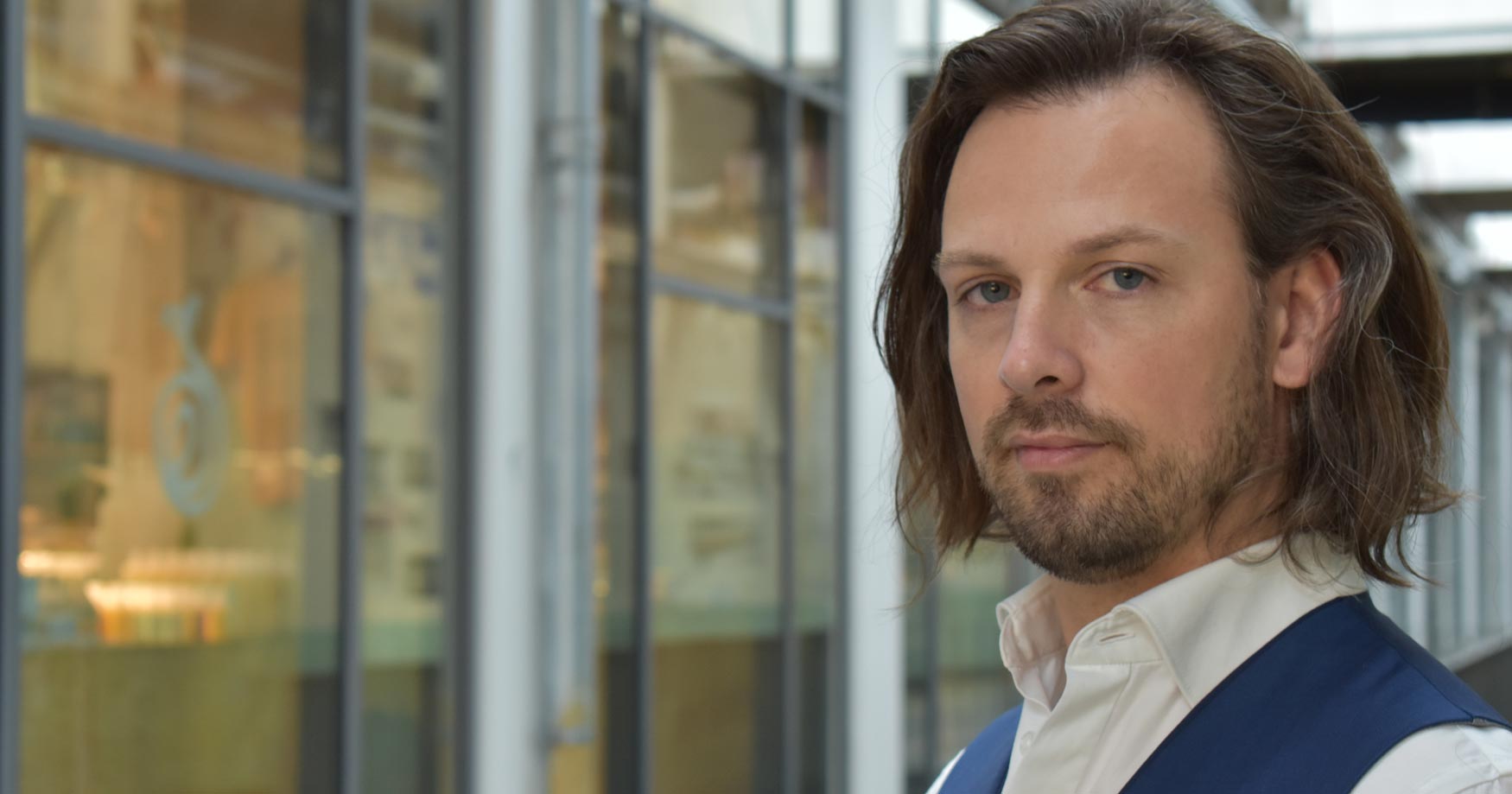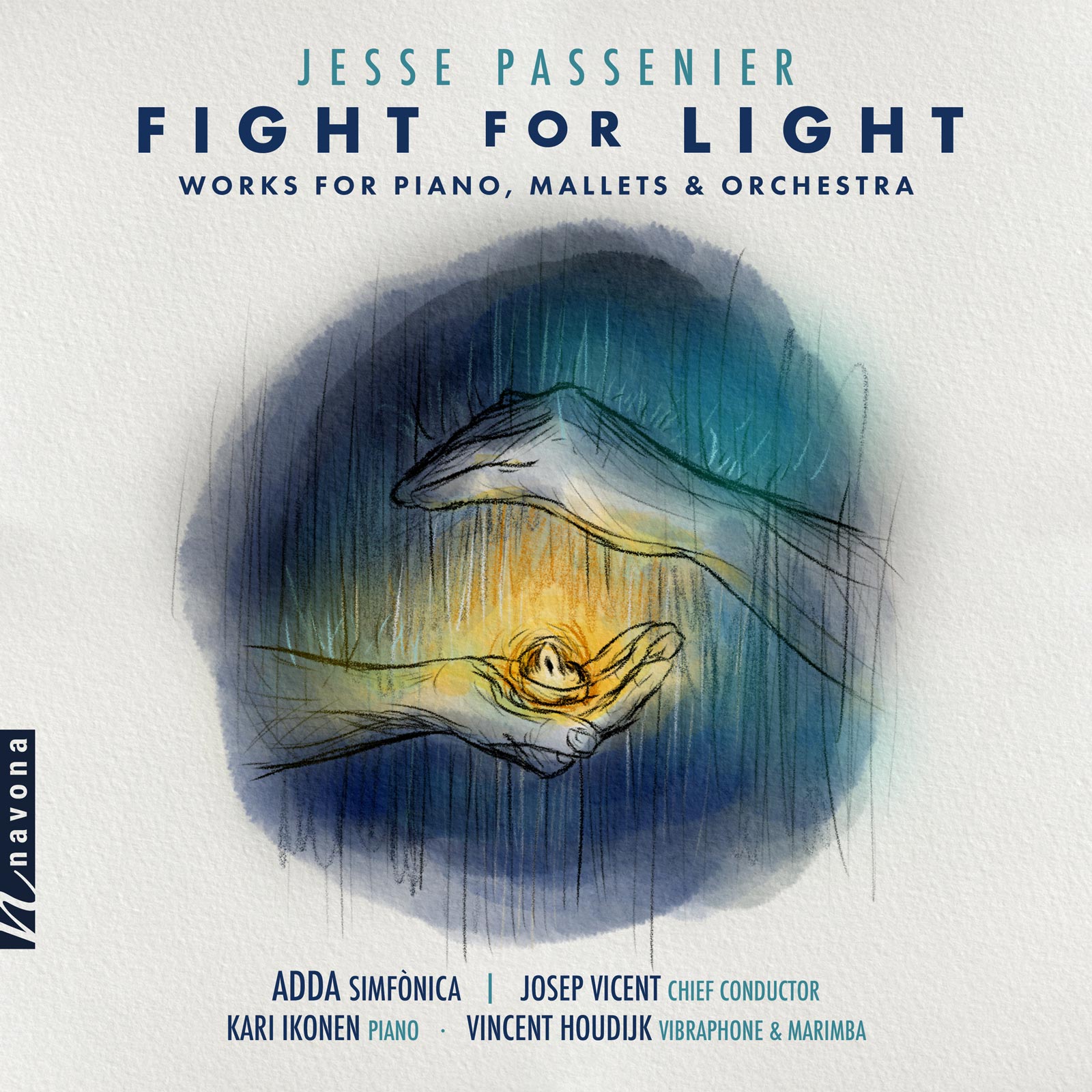
On FIGHT FOR LIGHT, Dutch composer Jesse Passenier explores the peripheries of jazz and classical, marrying the two genres together through symphonic music. The music presents a struggle for strength, goodness, and clarity, in which moments for great energy and urgency give way to quiet purity.
Today, Jesse is our featured artist in “The Inside Story,” a blog series exploring the inner workings and personalities of our composers and performers. Read on to learn about Jesse’s past as a drummer, and his interest in the ancient cities of the Andes Mountains as a source of creative inspiration…
Who was your first favorite artist(s) growing up?
While being surrounded by classical music, because my mum, who was always teaching singing classes at the house, was listening to that a lot, my first favorites were actually coming from my dad’s music. I remember being a total fan of a cassette tape on the A-side part of the Supertramp album “Breakfast in America” and on the B-side some of Stevie Wonder’s “Songs in the Key of Life”. Although I could go back more, and then there were some of those 45 rpm vinyl singles and an old record player that I had in my room, where I would play one with Johann Strauss’ “An der Schönen Blauen Donau”, for instance. After asking my mum about what it said in the title, I was sitting there, listening to it and imagining a beautiful, colorful river, passing all kinds of imaginary landscape. Loved it! Which is a funny thing, because gradually, I went down the rabbit hole of increasingly complex music, so looking back at myself, liking Johann Strauss, is actually quite entertaining.
When did you realize that you wanted to be an artist?
I grew up with a grand piano around me, but during the first period of my childhood, I was too impatient for it. It really started with drum lessons for me from the age of ten onwards, then two years later, I finally picked up piano myself, ending up spending whole days behind the keys, figuring things out autodidactically. Piano truly went hand in hand with coming up with my own music, my early compositions, let’s say, and learning about improvisation at the same time. I think right away, I felt like I had something to say with my own music — even though it was still very simple — but I was eager to let people listen to it and felt like I was a composer very early on!
What was your most unusual performance, or the most embarrassing thing that happened to you during a performance?
I must say that I have been quite lucky to not have ever felt truly embarrassed on stage. As I’ve rather quickly moved from being a drummer towards focusing on composing, I have mostly spent my stage time in front of big bands or ensembles, leading the group. There are always those moments where something goes wrong and you stand there, having to come up with a way to bring or keep everybody together. But that seems to have always been acceptable to me, so hardly worth the mention. I think my most unusual experiences have probably happened in my life as an arranger. I remember an instance at the Metropole Orchestra, where a Dutch singer came in pretty much entirely unprepared for the song that I arranged for him and the orchestra, and he asked me to sing along, so he would know where they were. Or that time when I came into the Carré theater in Amsterdam to hear the orchestral arrangements I had done, when it turned out the singer for one of the songs last-minute, during soundcheck, changed his mind about the key the song should be in, so they had decided to play an old arrangement of the same song instead. Certainly an awkward moment.
What is your guilty pleasure?
My guilty pleasure is this kind of “happy” jazz-fusion stuff from the late 70s and 80s, having a lot to do with my drumming past, actually. Gino Vanelli comes to mind, I love songs like Black Cars, or Brother to Brother.
If you could make a living at any job in the world, what would that job be?
I would spend my life composing for orchestra every working day, for sure! I don’t think I would miss arranging all too much, but it’s true that, if that were the case, I might start to miss teaching a bit, though!
If you could spend creative time anywhere in the world, where would it be and why?
Nature has a strong impact on me, but so does the good vibe of a city. To make a bit of a combination of the two, I could imagine feeling deeply inspired by those steep Andes mountains in Peru at Machu Picchu. I’d probably have to strip it of its tourists so that it would be nice and quiet, but both that nature plus the ancient city with its mysterious features would certainly hit home with me.
If you could instantly have expertise performing one instrument, what instrument would that be?
The violin. I can play a bit on quite a lot of instruments, but the violin takes a while to get to a level where it starts to be fun. So if I could skip the whole part of having to study through a time where what you’re doing doesn’t sound good at all — that would clearly be the violin, I’d love to be able to play it!!
What was your favorite musical moment on the album?
There are many moments to pick from that impact me greatly in my own heart. The way the ADDA Simfònica, Josep Vicent, Kari Ikonen, and Vincent Houdijk managed to get the music sounding just truly moves me. If I had to pick one moment only, it would be 12:24 in the second movement of the piano concerto, when the low strings and low brass take over, until the end of the movement. That really gets to me — but it only grips me deeply if I’ve been sitting quietly, listening to the whole movement from its start. If I would be allowed to mention a second moment, then I would name 5:30 until the end of the final and fourth movement of the vibraphone and marimba concerto, which is equally gripping, yet in such a different, and powerful mood. Similarly, however, without the whole vibraphone solo leading up to that moment, it wouldn’t do much to me, which proves to me how well everybody caught the intent of the music.
What does this album mean to you personally?
I have a one-year old baby — my sweetheart daughter Giulia — and obviously nothing tops that. But this album I can only describe as another baby brought into this world. It is by far the most important artistic achievement, and the one that is most significant to me of all that I have done so far. For me personally, this music has reached the deepest inside me, and truly gets the stories I want to tell across. It is my view that the meaning of music is both universal and personal. So what it means to me, is partly the same as, and partly very different from what it may mean to another. That is something I want to celebrate, therefore I don’t fixate the story in detail, yet there is a bigger message wrapped inside. I truly think that with this album, that bigger message is the clearest of all my music thus far.
Is there a specific feeling that you would like communicated to audiences in this work?
FIGHT FOR LIGHT reaches out to you, eager to inspire you to dare and dream, to go for your deepest wishes, to realize the life you want. At the same time, there is a message of listening to, and respecting each other, a message of kindness, and one of celebrating our diversity and differences. Essentially, the album projects a philosophy of life that I would like to share with everybody, something that has worked and continues to work very well for me throughout my life. I write music that — in its core — is positive. So even though there might be societal issues addressed that seem negative, my story is then reflective and solution-driven. There is enough negativity in this world, I do not feel a need to add to that, I am not someone who likes to use the confrontation with the negative in my art. I stick to the positive message, and I pray for the negative to resolve through people’s own paths of finding the positive and constructive in their lives, causing them to no longer need whatever it was they got from the negative they came from.

